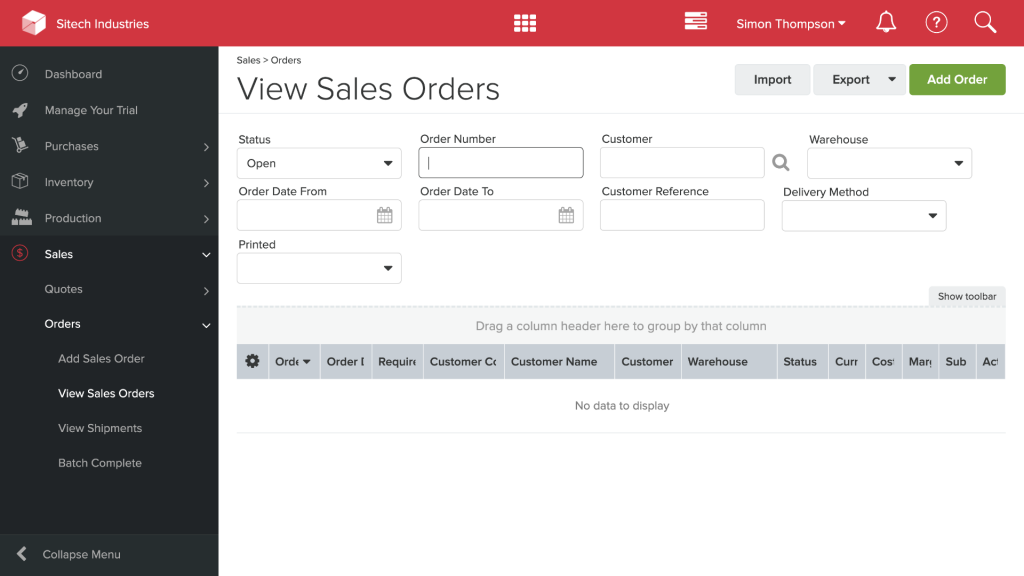Our Recommendations for your next Order and Inventory Management System
At Sitech Industries we’ve been working with TradeGecko since 2013. The TradeGecko team built, supported and actively-developed a great product for many years. As a stakeholder we were sad to hear Intuit would not continue to support the product past June 2022. Migrating a significant part of an ERP Network to a new platform in the wake of a global pandemic is going to be a challenge for a lot of businesses over the next 12 months.
There’s a lot more choice available in the space than there was when TradeGecko was born 10 years ago though. We’ve put together a brief list of our top 5 alternatives to TradeGecko which your business should consider. Each has similarities and differences to TradeGecko which could help your team take lemons and make lemonade.
We’ve been furiously working away for a week or two building this list. Catching up with product teams we have worked with before, testing alternative systems and comparing other systems we actively work with at the moment.
The list of alternatives to TradeGecko is not exhaustive or detailed, but we hope it will offer a great signpost to start your search. Don’t hesitate to get in contact if you need help choosing and migrating to your new platform. These generalised observations may not all be relevant to your specific business needs, and Sitech Industries are here to help.
If you pick one of the solutions recommended here, we’d appreciate if you could let them know who referred you!
Our Top Pick:
Dear Systems Inventory
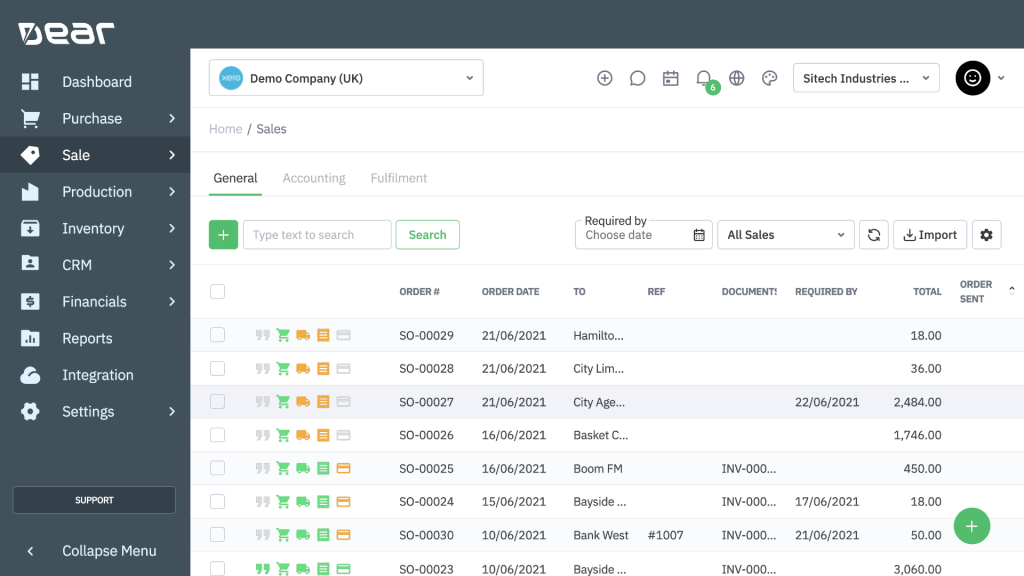
Dear Systems Inventory is our favourite alternative to TradeGecko in general, and it is reasonably compatible with TradeGecko. Where notable differences exist, Dear Systems offers more pros than cons in our trials and tests. It does come at a slightly higher cost depending on your requirements, but we think they have slightly more on offer too. Here are some of the stand-out similarities and differences we noted:
Similarities:
- The interface is somewhat similar (including the colour scheme). Never under-prioritise the quality of an interface. You and your team will use it day in and day out, and proper readability design will improve focus and reduce human error.
- There’s a great array of off-the-shelf integrations for the 3PL, shipping, financial and WMS software packages. (Including Xero and Shopify.)
- Dear has a B2B ordering platform.
Differences:
- The approach to price list management is arguably better than TradeGecko. With a more feature-rich CRM and task management system, Dear Systems offer your sales team with a lot more value.
- The sales workflow is more more complex and prescribed than TradeGecko.
- There’s a very different interface for managing your product database. Behind the interface, the database is essentially very similar though, so great for data migration.
- Configuration options throughout the system are much more complex. This is great for building bespoke functionality for your business, but it’s a steep learning curve.
- The B2B platform does not support limiting products available on a per-customer basis.
- The Workflows (Automation) tool isn’t as comprehensive as the TradeGecko version when it comes to filtering events by a range of conditions.
- The API, B2B and Workflows (Automation) additional users and integrations all cost extra per month. This could increase your monthly costs if you have a lot of connected sales channels. But the base package will cover a financial integration and a couple of external sales channels.
Our Enterprise-Level Pick:
Cin-7
The Cin-7 team offer a product which is heavily customisable. As a result, a business will need to go through an extensive implementation process to start using the system at it’s full potential. The Cin-7 team offer a great deal of support for you though, including bespoke EDI integrations. As a result, the system has more potential to keep a lot of external integrations in one place and to customise the system to your company more effectively in the longer-term.
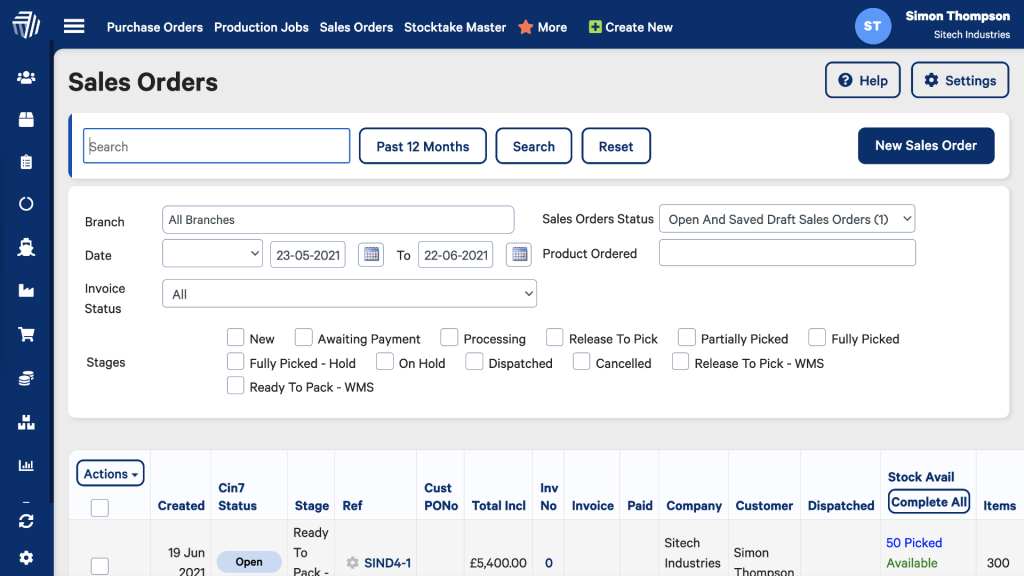
Automated Sales Channels:
Linnworks
Linnworks is designed mainly for inventory management across multiple sales channels and locations. It’s not really designed for manually entering orders. There’s no built-in customer database. We weren’t able to test the Xero integration, and many integrations are developed by third-parties which complicates the pricing and support structure.
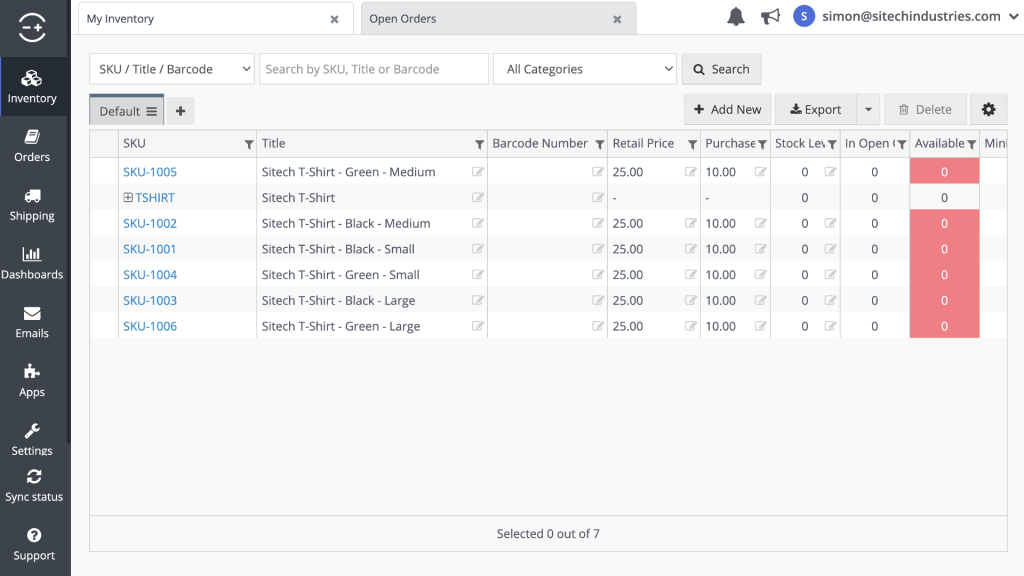
Other Systems of Note:
Microsoft NAV/Business Central
Microsoft Dynamic’s Business Central is a very different product to the others mentioned. Advantages are leveraged best by very large enterprises. It’s extremely customisable and supports a great deal of bespoke software development infrastructure. If you’re looking for support with moving to this platform, we’d recommend approaching a Microsoft specialist. We’ve worked with The Nav People and GCC in the past.
We have found the system is generally only economic if you have in-house tech support. The cost of development and support contracts can be significantly more costly than the already high cost of use from Microsoft.
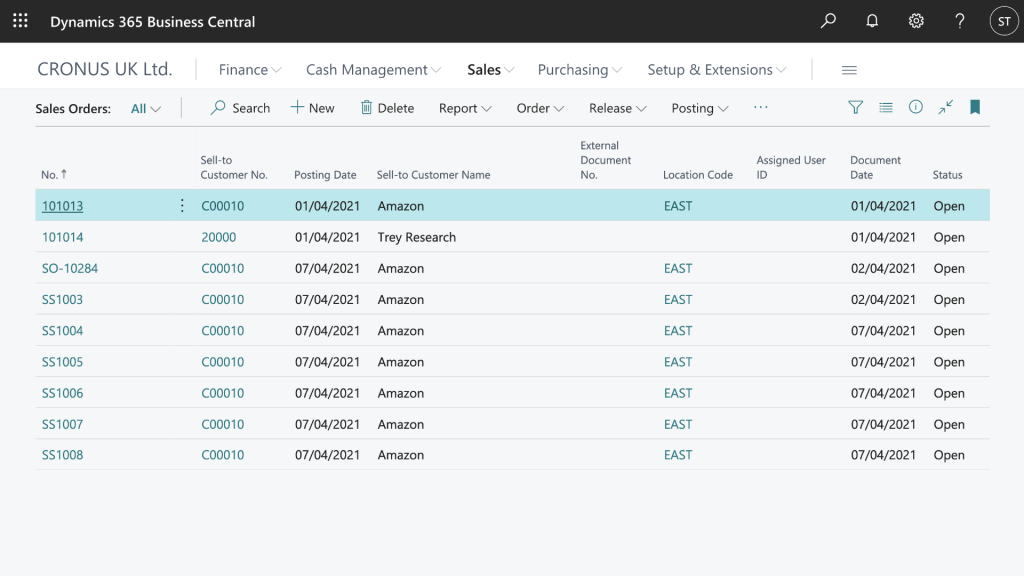
The interface is dated, the servers are slow for the cloud version and the user interaction is far from intuitive. It’s a very steep learning and migration curve.
Unleashed Inventory
Unleashed is a good platform, especially if you’re moving from TradeGecko. It is perhaps comparable to Dear Systems Inventory though. We have found that Dear Systems have solved problems a little more effectively in their interface design, and Dear Systems Inventory is a shade more feature-rich. But Unleashed deserves an honourable mention.
